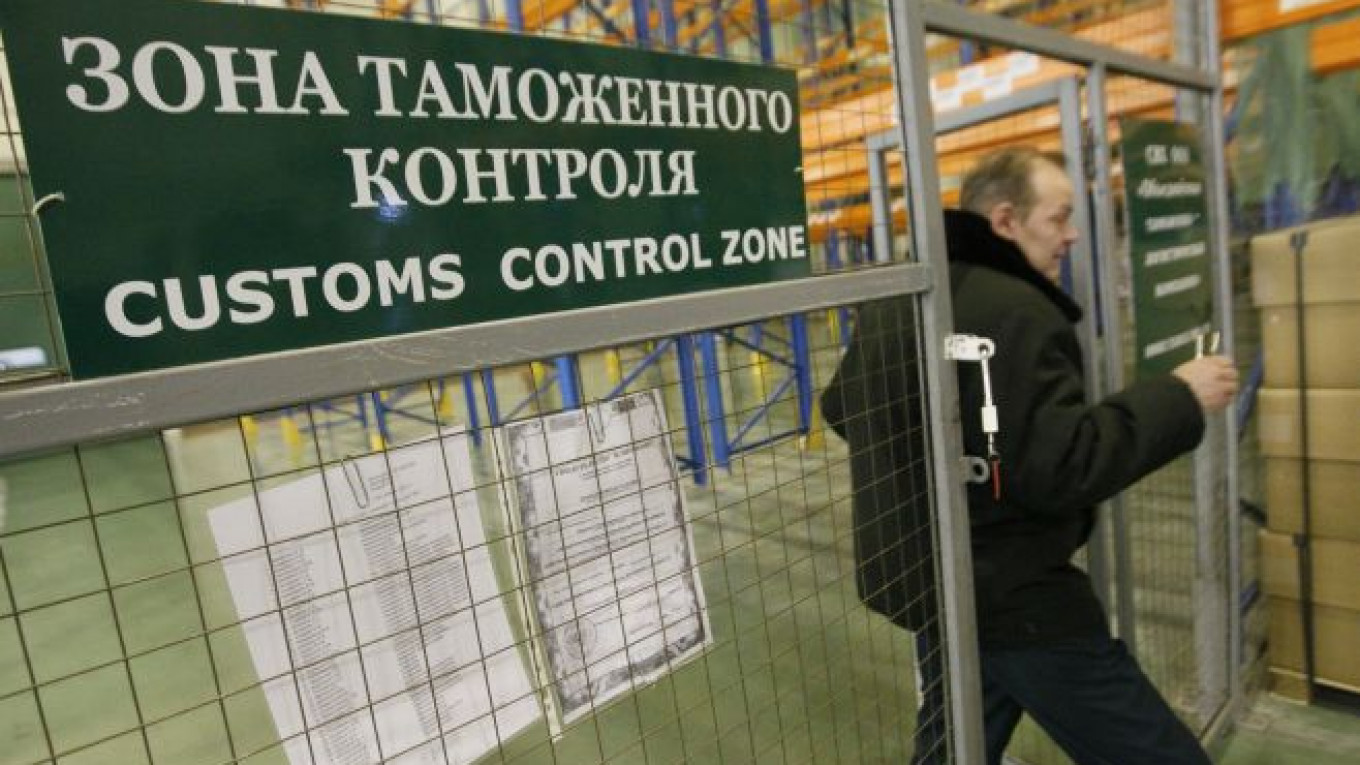The Finance Ministry on Friday published a draft of a long-awaited bill that could lower the limit on the value of personal purchases that can enter Russia customs-free from 1,000 euros ($1360) to 150 euros ($204).
Russia-based Internet retailers have long complained that the current threshold gives foreign retailers an unfair advantage, allowing them to slash prices below those offered by domestic retailers, who have to pay taxes and customs duties on the goods they import to Russia.
At President Vladimir Putin's meeting with Internet businesses in early June, Maelle Gavet, chief executive of Internet giant Ozon, said that Russia was losing 98 billion rubles a year ($2.8 billion) due to poor regulation of goods sold over the Internet by foreign e-commerce companies.
"In the rest of the world, the threshold value [for customs duties] is from 0 to 10 euros ($14)," Gavet said, RIA Novosti reported. "Law-abiding Russian stores, unlike their foreign colleagues, pay the legally necessary taxes and duties. Because of this it is becoming more and more difficult to compete on prices."
Putin responded that all companies who import goods across the border should face "identical conditions." The president signed a law in May that gave the government the right to change the parameters for customs-free imports.
The customs duty has become a hot topic in the e-commerce industry as cross-border trade expands its share of the market at a lightening rate. Cross-border trade more than doubled in 2014, reaching 20 percent of the total volume of e-commerce in Russia, while the market as a whole continued to grow at a rate of about 30 percent yearly, according to the Association of Online Vendors, or AKIT.
AKIT, whose members include such heavy-hitting online retailers as Ulmart, KupiVIP and Lamoda, has repeatedly complained that the current situation encourages domestic retailers to evade taxes and customs duties in order to offer competitively low prices.
In addition to the new 150-euro limit, the Finance Ministry's bill, which was published Friday on the government's legislation portal, requires a customs duty on all goods that weigh in at more than 10 kilograms, down from the current limit of 31 kilograms. The customs duty in Russia stands at 30 percent of the value of the imported good.
See also:
Rent on Commercial Real Estate in Moscow Falls for First Time in Decade
A Message from The Moscow Times:
Dear readers,
We are facing unprecedented challenges. Russia's Prosecutor General's Office has designated The Moscow Times as an "undesirable" organization, criminalizing our work and putting our staff at risk of prosecution. This follows our earlier unjust labeling as a "foreign agent."
These actions are direct attempts to silence independent journalism in Russia. The authorities claim our work "discredits the decisions of the Russian leadership." We see things differently: we strive to provide accurate, unbiased reporting on Russia.
We, the journalists of The Moscow Times, refuse to be silenced. But to continue our work, we need your help.
Your support, no matter how small, makes a world of difference. If you can, please support us monthly starting from just $2. It's quick to set up, and every contribution makes a significant impact.
By supporting The Moscow Times, you're defending open, independent journalism in the face of repression. Thank you for standing with us.
Remind me later.






